Team:UC Berkeley/GatewayPlasmid
From 2008.igem.org
(→Introduction) |
(→Scheme 1: Gateway Device in Assembly Vector) |
||
| Line 10: | Line 10: | ||
After careful analysis of our data, we introduced our Lysis device in order to eliminate the mini-prepping procedures and to thus make the entire process cheaper and more efficient.<br> | After careful analysis of our data, we introduced our Lysis device in order to eliminate the mini-prepping procedures and to thus make the entire process cheaper and more efficient.<br> | ||
| - | == ''' | + | == '''Gateway Device in Assembly Vector '''== |
'''Assembly Vectors:'''Two different variations of the pK112128 assembly vector were created: one with {promoter.xis.int!} and one with {promoter.xis.int!}{rbs.ihfA!}{rbs.ihfB!} between the ccdB site and the attR2 site. These plasmids are named pK112245 and pK112246 respectively (see images below). <br> | '''Assembly Vectors:'''Two different variations of the pK112128 assembly vector were created: one with {promoter.xis.int!} and one with {promoter.xis.int!}{rbs.ihfA!}{rbs.ihfB!} between the ccdB site and the attR2 site. These plasmids are named pK112245 and pK112246 respectively (see images below). <br> | ||
| Line 21: | Line 21: | ||
<br> | <br> | ||
<br> | <br> | ||
| + | |||
== '''Scheme 2: Gateway Device in Entry Vector '''== | == '''Scheme 2: Gateway Device in Entry Vector '''== | ||
Revision as of 06:16, 28 October 2008
Contents |
Gateway Plasmid Schemes
Introduction
The current in vitro Gateway procedure for transferring one piece of DNA into another vector without restriction enzymes involves an expensive cocktail of purified plasmids, excise/integrase, ihfA and ihfB. Both an assembly vector (containing the ccdB gene flanked by attR1 and attR2 sites for negative selection) and an entry vector (containing the part(s) desired to be transferred, flanked by attL1 and attL2 sites) are used as the substrates to which the reactants are added.
Inspired by such innovation, we seek to perform this task in vivo using E. coli to express the reactants necessary. Since E. coli naturally express ihfA/B in their genome, we first tried to integrate excise/integrase genes into the genomic DNA as well. However, this proved to be highly toxic to the cells (see Madhvi's Notebook). Therefore, our next approach was to introduce the reagents into the substrate plasmids. In one case, the the assembly vectors received the Gateway device of reagents excise/integrase preceded by a temperature sensitive promoter, while in the other case it was introduced into the entry vectors. In both cases, we also explored the effects of additionally introducing the ihfA and ihfB genes behind the Gateway device.
After careful analysis of our data, we introduced our Lysis device in order to eliminate the mini-prepping procedures and to thus make the entire process cheaper and more efficient.
Gateway Device in Assembly Vector
Assembly Vectors:Two different variations of the pK112128 assembly vector were created: one with {promoter.xis.int!} and one with {promoter.xis.int!}{rbs.ihfA!}{rbs.ihfB!} between the ccdB site and the attR2 site. These plasmids are named pK112245 and pK112246 respectively (see images below).
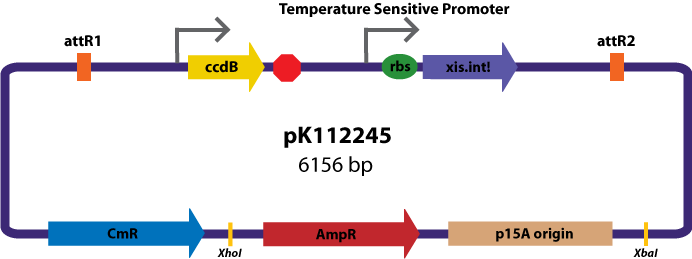
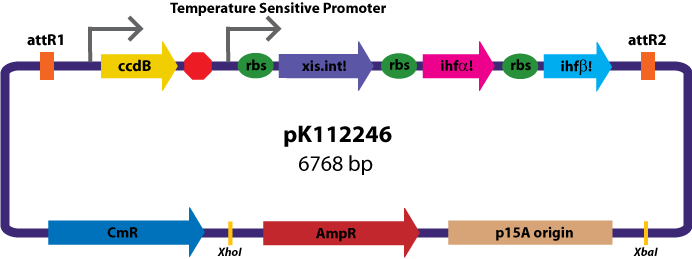
Entry Vector:The entry vector used in both cases was pBca1256 (see image below).
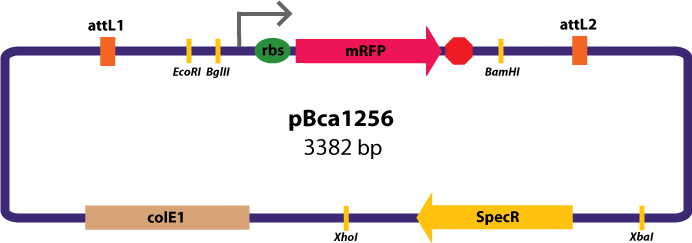
Scheme 2: Gateway Device in Entry Vector
Assembly Vector:The assembly vector used for each of the following entry vector variations is pK112128 (see image below.
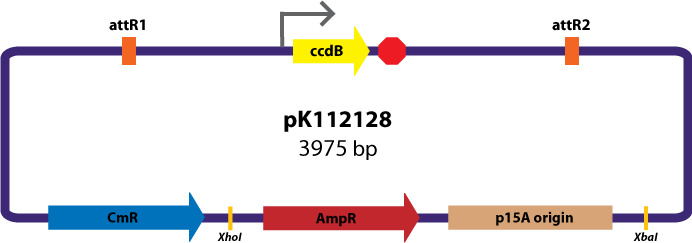
Entry Vectors: Two different variations of the pBca1256 entry vector were created: one with {promoter.xis.int!} and one with {promoter.xis.int!}{rbs.ihfA!}{rbs.ihfB!} just before the attL1 site. These plasmids are named pK112247 and pK112248 respectively (see images below).
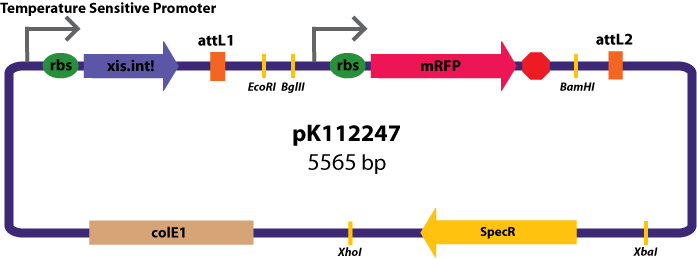
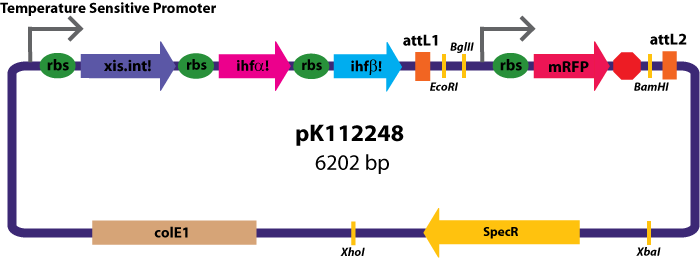
 "
"